The Oral Microbiome: Past, Present & Future
This event is now concluded. Thank you to everyone who made the conference a great success!
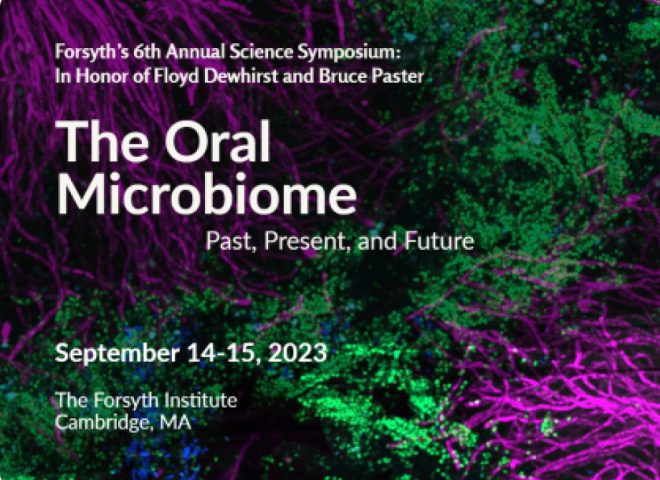
About the Oral Microbiome Symposium
For over 40 years, Forsyth has been the home of two giants in the field of oral microbiology: Floyd Dewhirst, DDS, PhD and Bruce Paster, PhD. These ADA Forsyth faculty pioneered the field of oral microbiology, published 94 papers together, and developed a world-class research program that continues to lead oral microbiome research globally today. Forsyth is the home of the Human Oral Microbiome Database (HOMD), which holds comprehensive and curated information on 774 oral bacteria species in the human mouth.
In recognition of the leadership of Drs. Dewhirst and Paster and their significant contribution to the field, we are holding ADA Forsyth’s 6th Annual Scientific Symposium in their honor. Convening microbiome experts from academia, venture capital, and industry, this symposium will explore the Oral Microbiome: from where we have been and where we are now, to future advances and beyond the mouth.
Opening the symposium with a historical overview will provide a firm grounding for thinking about present and future studies. The second session will bring together early-career and more established researchers using innovative methods to study microbiomes, genomes, and bacterial ecology and interactions, both in and outside the mouth.
Following these presentations with a think-tank style session, including leaders from industry as well as funding agencies, will enable the participants to compare views and discover if there is consensus on where basic research is most needed so that oral microbiology can lead to meaningful improvements in human health.
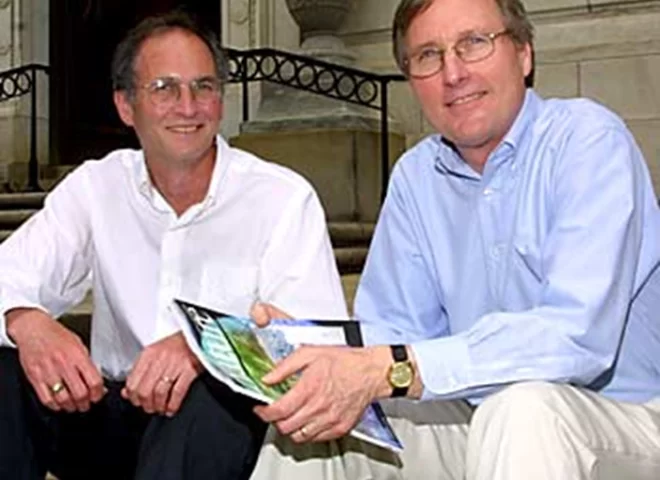
Register
Register now for ADA Forsyth’s 6th annual scientific symposium
Join the ADA Forsyth Institute for two-day scientific symposium on the oral microbiome in honor of the lifetime contribution of Floyd Dewhirst, DDS, PhD and Bruce Paster, PhD.
September 14-15, 2023
The Forsyth Institute
Cambridge, MA
A cocktail reception to follow conference on Thursday evening 5-8pm ET for in-person attendees.
Cost to attend
In-Person ticket: $75
Virtual ticket: $50
Student ticket: $25
Speaker Bios
This year’s 6th Annual ADA Forsyth Scientific Symposium features prominent speakers in the microbiome field. We are excited to have them join us in Boston on September 14-15, 2023 and we look forward to the lively discussions that will come.

Susan Bullman, PhD
Assistant Professor, Human Biology Division, Fred Hutchinson Cancer Center
Dr. Susan Bullman is an Assistant Professor at the Fred Hutchinson Cancer Center where her group studies the role of the intratumoral microbiota on cancer progression and patient response to treatments. She completed her graduate research in Ireland and then her postdoctoral fellowship at the Dana-Faber Cancer Institute and Broad Institute in Prof. Matthew Meyerson’s laboratory and…
View more
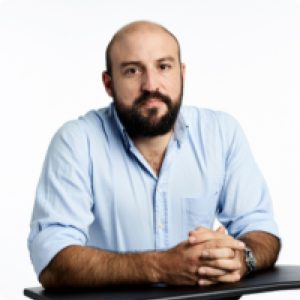
Otto Cordero, PhD, MSC
Associate Professor, Massachusetts Institute of Technology
Professor Cordero studies the ecology and evolution of natural microbial collectives. His lab is interested in understanding how social and ecological interactions at micro-scales impact the global productivity, stability and evolutionary dynamics of microbial ecosystems.
View more
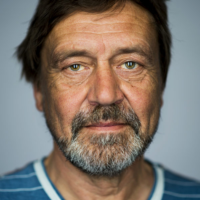
Slava Epstein, PHD
Professor Northeastern University
The overarching theme of my laboratory is microbial discovery in the environment and human microbiome. We uncover novel microbial life forms by inventing novel cultivation strategies that depart from conventional wisdom and provide access to the greatest part of microbial diversity: unexplored species missed in the past. We study properties of new environmental and medically important microorganisms, and their strategies of survival. We are especially interested to know how microbial cell reacts to unfavorable conditions, survives environmental challenge, and decides when and where to start dividing and form a new successful population. We are intrigued by the phenomenon of microbial individuality: ability of isogenic cells to be phenotypically different. We are fascinated by signaling and cooperative interactions between and within populations, – interactions that integrate microbial species into multifunctional units analogues to multicellular organisms. We are also involved into several aspects of applied microbiology, and explore the importance of newly discovered species in human health, their potential for bioremediation and alternative fuel production, and ability to produce bioactive compounds. And we are excited to learn about patterns of microbial distribution on our planet, in a search for places in the biosphere where the opportunities to discover new microbes are the greatest.
View more
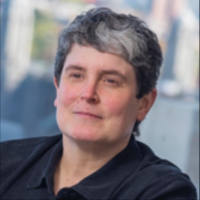
Katherine P. Lemon, MD, PHD
Associate Professor, Baylor College of Medicine
Biography. Dr. Lemon follows her curiosity. After clinical training, Dr. Lemon did mentored research with Dr. Roberto Kolter, at Harvard Medical School, focusing initially on elucidating molecular mechanisms of biofilm formation by Listeria monocytogenes. However, the interspecies interaction research in the Kolter lab captured her attention. Simultaneously, as a Pediatric Infectious Diseases doctor, she was regularly encountering invasive bacterial infections caused by two common human nasal microbionts, Staphylococcus aureus and Streptococcus pneumoniae. These experiences sparked her curiosity about how benign nasal microbionts resist pathobiont colonization and affect pathobiont behavior. Nasal colonization by S. aureus or S. pneumoniae is a risk factor for infection by the colonizing bacterium at distant body sites and decreasing colonization by these species decreases infections. A long-term goal of the KLemon Lab is to make discoveries that will be leads for new microbiota-based approaches to prevent, and treat, infections by S. aureus and S. pneumoniae. Most recently her group is pioneering use of human nasal epithelial organoids (HNOs) as a model system to investigate bacterial colonization of the human nasal passages. Dr. Katherine P. Lemon is a physician-scientist. She earned a Ph.D. in biology from the Massachusetts Institute of Technology investigating chromosome replication in the gram-positive model organism Bacillus subtilis with Dr. Alan Grossman. After earning an M.D. from Harvard Medical School, Dr. Lemon completed a pediatric residency and a fellowship in Pediatric Infectious Diseases at Boston Children’s Hospital. Dr. Lemon started her lab at the Forsyth Institute in Cambridge, MA. She is now an Associate Professor of Molecular Virology & Microbiology in the Alkek Center for Metagenomics and Microbiome Research at Baylor College of Medicine and a Pediatric Infectious Diseases physician in the Division of Infectious Diseases at Texas Children’s Hospital in Houston, TX.
View more
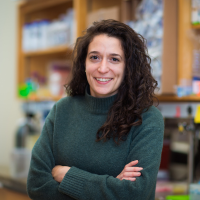
Tami Lieberman, PHD
Assistant Professor, Massachusetts Institute of Technology
Professor Tami Lieberman studies microbial evolution in real time, with a focus on mutations occuring within individual human microbiomes. Prof Lieberman earned a PhD in Systems Biology from Harvard University, where she conducted research in Roy Kishony’s laboratory. During her graduate research, Tami developed new genomic approaches for understanding how bacteria evolve during infections of individual people. As a postdoc in Eric Alm’s lab at MIT, she further developed and applied these genomic approaches to understand the microbes that colonize us during health. Her lab at MIT opened in 2018 uses experimental and computational techniques to study gut and skin microbiomes, with the goal of understanding the molecular determinants of colonization success and enabling the precise manipulations of microbiomes. She is a recipient of the NIH Director’s New Innovator Award.
View more
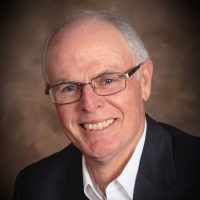
Dennis Mangan, PHD
Director, Chalk Talk Science Project
Dennis Mangan has long been interested in bacteria and the people who study them. He received a BS in Experimental Psychology from Penn State University followed by another BS in Bacteriology from Iowa State University. After a short stint as a clinical microbiologist, he earned a PhD in Medical Microbiology at the West Virginia University with Dr. Irvin Snyder, and then studied Cellular Immunology as a postdoctoral scholar at the University of Michigan under Dr. Dennis Lopatin. Dennis investigated the role of oral bacteria in periodontal diseases at the University of Rochester Medical School for five years, and then moved to the National Institutes of Health (NIH) in Bethesda MD where he worked with Dr. Sharon Wahl for three years studying human monocyte survival within inflammatory lesions. For the next 14 years he directed an extramural Program in infectious diseases at the National Institute for Dental and Craniofacial Research, spearheading the movement to sequence the human oral microbiome. He also served as an Associate Dean for Research for Dr. Hal Slavkin at the University of Southern California Dental School before returning to the NIH as a senior advisor to Dr. Vivian Pinn and the NIH Director Francis Collins to advance research on chronic fatigue syndrome. As a long-time advisor to research investigators, Dennis recognized how good communication improves career development, funding opportunities, government policy, and overall perception of science. He now is the Director of the Chalk Talk Science Project where he teaches science communication and advocates for instruction in science communication as an integral requirement for all junior scientists. His goal is to increase public awareness of biomedical research by helping researchers effectively explain their ideas and results to diverse audiences, including university/corporate administrators, students, colleagues, news media, policymakers, patient organizations, funding agencies, philanthropists, family, and friends. He lives in Northern California with his wife and poodle-mix dog.
View more

Tamara McNealy, PHD
Director of Oral Microbiota & Bacterial Disease Program, NIH/NIDCR
Tamara McNealy, Ph.D., is program director for the Oral Microbiota and Bacterial Disease Program at the National Institute of Dental and Craniofacial Research at the National Institutes of Health. Prior to joining NIDCR, she was at the NIH Center of Scientific Review (CSR) where she was a Scientific Review Officer with the Infectious Diseases and Microbiology Integrated Review Group. While at CSR she managed the Infectious Diseases and Microbiology Fellowship Review Panel and review of the Fogarty International Center Global Infectious Disease Training Program. Previous to joining CSR, Dr. McNealy was an Associate Professor of Microbiology at Clemson University where she conducted research in the areas of pathogenic biofilms, food and waterborne disease and biofilm-nanoparticle interactions. Tamara received her Ph.D. from the University of Heidelberg, Germany in Molecular Biology.
View more
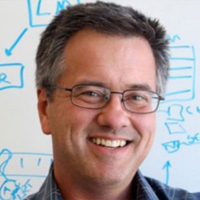
Jeff F. Miller, PHD
Professor, UCLA
Jeff F. Miller, Ph.D., studies molecular mechanisms of bacterial pathogenesis and the evolution of functional diversity in bacteria and phage. He received his bachelors degree in Chemistry from Case Western Reserve University and his Ph.D. in Molecular Biology from Tufts Univ. School of Medicine. After postdoctoral training with Dr. Stanley Falkow at Stanford, he joined the faculty at UCLA in 1990. From 2002-2014 he held the M. Philip Davis Chair in Microbiology and Immunology and served as Chairman of the Department of Microbiology, Immunology and Molecular Genetics. In November, 2014, he was appointed as the Fred Kavli Endowed Chair in NanoSystems Sciences and Director of the California NanoSystems Institute at UCLA. In 2004, Dr. Miller co-founded AvidBiotics Corp., a biotherapeutics company in South San Francisco. In 2009 he was appointed by the Secretary of Health and Human Services to serve on the National Science Advisory Board for Biosecurity and he is a voting member of the Board. From 2008-2010 he was Chair of the General Meeting of the American Society for Microbiology (ASM), and from 2012-2014 he served as President of ASM, which represents 40,000 members in the US and abroad. Dr. Miller is a former Pew Scholar in the Biomedical Sciences, a member of the American Academy of Microbiology, a fellow of the American Association for the Advancement of Science, and in April, 2015 he was elected to membership in the National Academy of Sciences.
View more
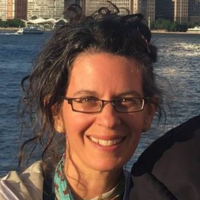
Dianne K. Newman, PHD
Professor, CA Institute of Technology
Electron-transfer reactions are fundamental to metabolism. Whether an organism is autotrophic or heterotrophic, free living or an obligate parasite, every cell must solve the energy-conservation problem to survive. At the cellular level, most of our knowledge of electron transfer comes from mechanistic studies of oxygenic photosynthesis and aerobic respiration in bacterial and eukaryotic systems. While we know in exquisite detail the structure and function of various membrane-bound proteins involved in electron-transfer processes (e.g., cytochrome c oxidase in mitochondria), we know far less about the electron-transfer agents of more ancient forms of metabolism that do not traffic in oxygen. As microbiologists interested in the origin and evolution of the biochemical functions that sustain modern life, our work has focused on probing the co-evolution of metabolism with Earth’s near-surface environments. Understanding how modern microorganisms with archaic metabolisms function is a step towards this end. Moreover, because many biological microenvironments are anoxic, including those in most chronic infections, this path of inquiry leads inexorably to insights about cellular electron-transfer mechanisms that potentially have profound biomedical implications. Because rocks provide the primary record of ancient events and processes, our laboratory initially explored microbe-mineral interactions. In particular, we investigated how bacteria catalyze mineral formation, transformation, and dissolution, focusing on how these processes relate to cellular energy conservation or membrane organization, and how they affect the geochemistry of their environment. For every pathway that we studied, we chose model organisms that we could genetically manipulate. Through a combination of classical genetic, biochemical, and molecular biological approaches, we identified the genes and gene products that controlled the processes of interest. As our work progressed, it became increasingly clear that our findings transcended microbe-mineral interactions. Accordingly, our focus has shifted to exploring basic physiological questions that are relevant to diverse biological systems. A geobiological perspective still imbues our approach, compelling us to perform our mechanistic studies under environmental conditions that bear fidelity to the complex contexts that motivate our work—be they the microenvironments of infected tissues or crop rhizospheres.
View more
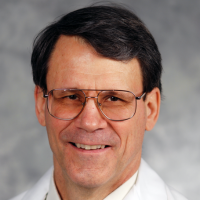
Frank Nichols, DDS, PHD
Professor, University of Connecticut School of Dental Medicine
Dr. Frank Nichols, DDS, PhD, is Professor in the Division of Periodontology of the University of Connecticut School of Dental Medicine. He has served as curriculum director for undergraduate Periodontics didactic/clinical program, as well as the Periodontics residency program director. In addition to didactic and clinical teaching responsibilities, he is engaged in basic research involving unique bacterial-host interactions in periodontal disease and related systemic diseases. His work has characterized structural and biological properties of phosphorylated dihydroceramides, and more recently his lab has characterized novel serine/glycine lipids produced by the periodontal pathogen, Porphyromonas gingivalis, and other members of the Bacteroidota (formerly Bacteroidetes) phylum. The biological properties of these lipids are relevant to periodontal diseases as well as autoimmune and chronic inflammatory diseases including atherosclerosis.
View more
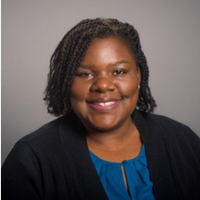
Jessica Scoffield, PHD
Assistant Professor, University of Alabama
Dr. Jessica A. Scoffield is an Assistant Professor in the Department of Microbiology at the University of Alabama at Birmingham (UAB). She received her BS and MS degrees in Biology from Tuskegee University and her PhD in Microbiology from Auburn University. She completed her postdoctoral training with Dr. Hui Wu at UAB as a Dental Academic Research Training Scholar, where she studied the antimicrobial roles of oral commensal bacteria. Dr. Scoffield’s group at UAB currently studies the role of oral commensal streptococci on microbial pathogenesis and host immunity during polymicrobial infections in the oral cavity and cystic fibrosis airway. Her research program utilizes molecular genetics and high-throughput technologies (RNA sequencing, Tn-sequencing, proteomics, and metabolomics) in combination with oral and lung rat infection models to answer fundamental questions about how commensal bacteria safeguard against oral and respiratory pathogens.
View more
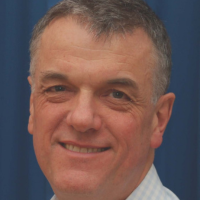
William Wade
Emeritus Professor, Kings College London; Adjunct Faculty, The Forsyth Institute
William Wade is Emeritus Professor of Oral Microbiology at King’s College London. He is also Adjunct Faculty at the Forsyth Institute, Cambridge, USA. He has been a central figure in the development and application of methods for the characterisation of the oral microbiome in health and disease. He has particular interests in the cultivation of previously uncultivated bacteria and the development and evaluation of antimicrobials and pre- and probiotics for the prevention and treatment of oral diseases. He has published extensively in peer-reviewed journals and obtained grant funding from UK Research Councils, the US National Institutes of Health and major charities including the Wellcome Trust. He has also worked closely with Industry on translational projects to develop new oral care products exploiting new knowledge of the oral microbiome.
View more
Preliminary Program
DAY 1
Thursday September 14, 2023
Location: The ADA Forsyth Institute (Cambridge, MA)
8:00 am – 9:00 am Registration & Continental Breakfast
Session 1: How did we get here?
9:00 am – 9:05 am Wenyuan Shi, CEO, The Forsyth Institute | Welcome and Overview
9:05 am – 9:25 am Dennis Mangan, Director | Chalk Talk Science Funding the Human Microbiome: Overcoming Barriers and Skeptics
9:25 am – 9:55 am William Wade, Professor of Oral Microbiology, King’s College London | The Cultured Oral Microbiome
9:55 am – 10:05 am TBA Impact of Dewhirst and Paster on Oral Microbiology
10:05 am – 10:15 am Coffee Break
Session 2: Where are we? Rules of Microbial Colonization
10:15 am – 10:45 am Tami Lieberman, Assistant Professor of Civil and Environmental Engineering, Massachusetts Institute of Technology Using de novo Mutations to Understand Human Microbiomes
10:45 am – 11:15 am Katherine Lemon, Associate Professor of Pediatric Infectious Diseases, Baylor College of Medicine In the search for beneficial bacteria, follow your nose!
11:15 am – 11:45 am Flash Talks (5)
11:45 am – 12:45 pm Lunch & Poster Viewing
Session 3: Where are we? Ecology of the Microbiome
12:45 pm – 1:15 pm Otto Cordero, Associate Professor of Civil & Environmental Engineering, Massachusetts Institute of Technology | Ecology of Bacteria in Multicellular Aggregates
1:15 pm – 1:45 pm Jessica Scoffield, Assistant Professor of Microbiology, University of Alabama at Birmingham | Exploring the protective roles of oral commensal bacteria and nitrite
1:45 pm – 2:15 pm TBA Flash Talks (5)
2:15 pm – 2:30 pm Coffee Break
2:30 pm – 2:45 pm TBA Trainee Talk 1
2:45 pm – 3:00 pm TBA Trainee Talk 2
3:00 pm – 3:15 pm TBA Trainee Talk 3
3:15 pm – 4:00 pm Dianne Newman, Professor of Biology & Geobiology, California Institute of Technology | Nitric oxide drives microbial community organization as a function of oxygen
Posters & Reception
4:00 pm – 5:00 pm Poster Presentations
5:00 pm – 5:30 pm Break & Travel to Restaurant
5:30 pm – 8:00 pm Reception
DAY 2
8:00 am – 9:00 am Registration & Continental Breakfast
Session 4: Where are we? Oral Microbiome and Systemic Biology
9:00 am – 9:30 am Frank Nichols, Professor of Periodontology, University of Connecticut Health | Bacterial Lipids, Periodontal Disease and Systemic Innate Immunity
9:30 am – 10:00 am Susan Bullman, Assistant Professor of Human Biology, Fred Hutch Cancer Center | Oral Microbes & Human Cancers: A Role in Cancer Progression & Treatment Response
Session 5: Now what? A think tank for the Oral Microbiology of the future
10:00 am – 11:30 am A panel of leaders from biotechnology, venture capital, and funding agencies will views on where focused research would help propel the field of microbiology toward greater impact on human well-being.
Panelists: Slava Epstein, Professor, Northeastern University; Tamara McNealy, Program Director, Oral Microbiota and Bacterial Disease Program, NIH NIDCR; Jeff F. Miller, Professor, UCLA; Wenyuan Shi, CEO, The Forsyth Institute
Session 6: Summary & future directions
11:30 am – 11:50 am Group discussion of future directions.
11:50 am – 11:55 am Bruce Paster, Emeritus Member of Staff, The Forsyth Institute | Closing Remarks
11:55 am – 12:00 pm Floyd Dewhirst, Emeritus Member of Staff, The Forsyth Institute | Closing Remarks

Call for Abstracts
ADA Forsyth is pleased to announce we are now accepting abstracts for posters and short talks during ADA Forsyth’s 6th Annual Scientific Symposium.
This year, up to three short (12-minute) talks will be selected from among the submitted abstracts! Also, up to 10 of those submitting abstracts will be invited to present a 3-minute flash talk during the plenary session (on 9/14), in addition to the poster presentation. Additionally, those flash talk presenters will be invited to attend a special pre-symposium workshop on September 13 from 1:00 pm to 5:00 pm at the ADA Forsyth Institute in Cambridge MA. The workshop will be presented by Dr. Dennis Mangan of Chalk Talk Science, entitled “Next Level Science Communication – Maximizing the Mini-Message for the Masses.”
We especially encourage early-career scientists and scientists from minority-serving institutions or from historically marginalized or under-represented groups to submit abstracts for poster presentations. Travel awards are available for eligible participants.
Submission Guidelines
Include all authors in the authors and affiliations list, including the submitting author, any co-authors, and the principal investigator. Please indicate which author will present the abstract if accepted.
Abstracts should be a maximum of 250 words.
Review Procedures and deadlines:
- Deadline Extended! Abstracts must be received by July 25, 2023 for full consideration for presentation.
- Due to limited space in the Symposium venue, not all abstracts can be accepted.
- Complete presentation instructions will be emailed to the submitters of accepted abstracts.
- Preference for flash talk acceptance will be given to individuals who are able to attend the pre-conference workshop on September 13.
Travel Awards
Several travel awards are available to support participation of early-career scientists and scientists from minority-serving institutions or from historically marginalized or under-represented groups. If you would like to be considered for a travel award, please submit a brief statement explaining your reasons for eligibility.

Sponsorship Opportunities
If you would like to honor Drs. Dewhirst and Paster by sponsoring this symposium, please contact John Izzo for more information.

